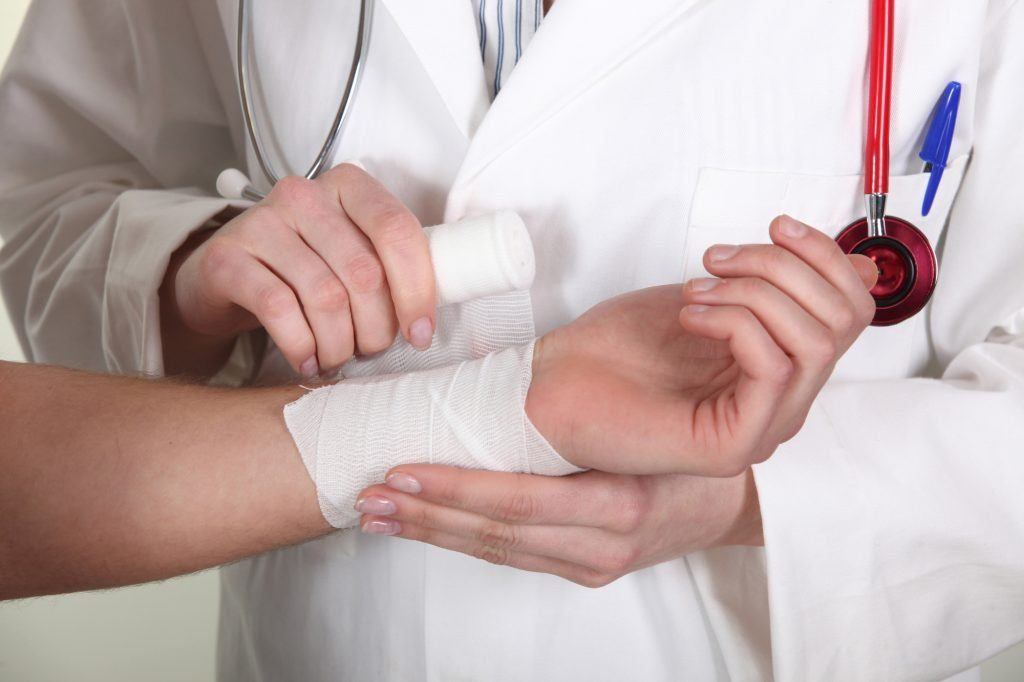Rehabilitation for Burn Victims
Rehabilitation for Burn Victims

In our personal injury practice, we have represented several clients who have suffered severe burns. While some of those cases have involved other types of incidents, many were related to auto accidents.
There are several ways in which a person can suffer burn injuries in a car crash. They include:
- Flames igniting within the vehicle
- Vehicle explosion
- Airbag deployment
- Leaking of caustic chemicals
- Exposure to hot metal or other heated debris
- Exposure to scalding steam
- Electrocution
Each of the different types of burns requires a different type of treatment.
If you or a loved one has suffered burn injuries in a car accident or other type of incident that was the result of another party’s negligence, call to speak with one of our compassionate injury lawyers at (916) 921-6400 or (800) 404-5400. Burn injuries are uniquely devastating, and consulting with a personal injury law firm with experience in burn cases will help ensure that your rights are protected and that you are fully compensated for your damages.
Rehabilitation After Serious BurnsWith modern advances in care, more patients survive severe burn injuries. Because of the increased survival rate, there is a demand for advanced rehabilitation techniques once the acute recovery phase has been completed. Rehabilitation should be started as soon as possible in hopes of retaining muscle and joint function.
Burn rehabilitation specialists will evaluate the patient to determine which interventions may be most beneficial. The therapist will need to know the mechanism of injury, the total body surface area that was burned, and whether there are other injuries. The rehabilitation specialist will then determine the patient’s range of motion and how well the patient can perform their activities of daily living. Short and long-term treatment goals will be documented, and the treatment plan will begin. Re-evaluations will be performed regularly.
Positioning the Burn VictimThere are many challenges when a patient is bed-bound with burns to a large total body surface area. The rehabilitation specialist will help position the person and develop a positioning program so that the badly burned areas are not subject to too much pressure for long periods of time. The rehabilitation team works with splints, cut-out troughs, pillows, and the bed to give the burned areas the best possible chance of healing. Some patients with back wounds need to be positioned on their stomachs to prevent the shearing off of the skin grafts that have been placed on the back.
Other purposes of positioning and physical therapy for burn patients include:
- Preventing facial swelling
- Keeping the joints aligned
- Elongating the tissues
- Maintaining range of motion around joints
- Supporting and protecting joint surfaces from pressure sores
- Protecting skin grafts
- Promoting wound healing
- Strengthening weakened muscles
Wedges made of foam or wood can be placed beneath the mattress to allow the patient to comfortably lie on one side or the other. Prone positioning is considered a measure of last resort because it can compromise the patient’s airway and be uncomfortable for some.
Traction devices are usually utilized in burn recovery. There are several ways to apply traction to the fingers, arms, and legs. The purpose of traction is to prevent contractures and elevate the extremities to decrease swelling.
Scar Management with Burn InjuriesBurn rehabilitation specialists also take part in the management of future scarring. Scars, by their very nature, contract the skin. This adversely affects the functional recovery of joints. Modalities can be used to prevent scars from becoming hypertrophic (thickened) and, therefore, not cosmetically acceptable. Hypertrophic scars are difficult to manage, and care needs to be taken early on in healing to prevent them. One of the best ways to prevent hypertrophic scars (also known as keloid scars) is to use pressure garments that slightly decrease the circulation to the healing wound and can, therefore, keep less collagen from forming in the area.
Pressure garments can be used on any part of the body. Any burned area that is expected to heal beyond three weeks may benefit from pressure therapy. Areas of the body that are concave, such as the face, neck, axilla, and the palm of the hand, can benefit from inserts within the pressure garment to mold the skin to promote a flatter scar. Burn scars can also be massaged to keep them supple and more yielding. Massage also helps to prevent itching as the area heals.
Burn Rehabilitation Through ExerciseEventually, the burn patient will be able to ambulate and exercise to some degree. The exercise program must be done gradually, beginning with stretching and progressing to aerobic and strengthening exercises. This is a slow process – one that can take months to years to complete. The success of an exercise rehabilitation program relies on many factors, including the patient’s age, the degree of burn, and the motivation of both the patient and their occupational and physical therapists.
Watch the YouTube video. The clip below shows techniques used during physical therapy for burn patients. Warning: the video contains images of burn injuries.
Experienced Burn Injury AttorneyHave you suffered burn injuries in an accident caused by negligence? Attorney Ed Smith has decades of experience helping severely burned clients recover monetary compensation for their losses. Call us today for free, friendly advice at (916) 921-6400 or (800) 404-5400.
Please see our client reviews on Avvo, Google, and Yelp for more information about our firm. Past case results are listed on our Verdicts and Settlements page.
:mm [cs 911] bw